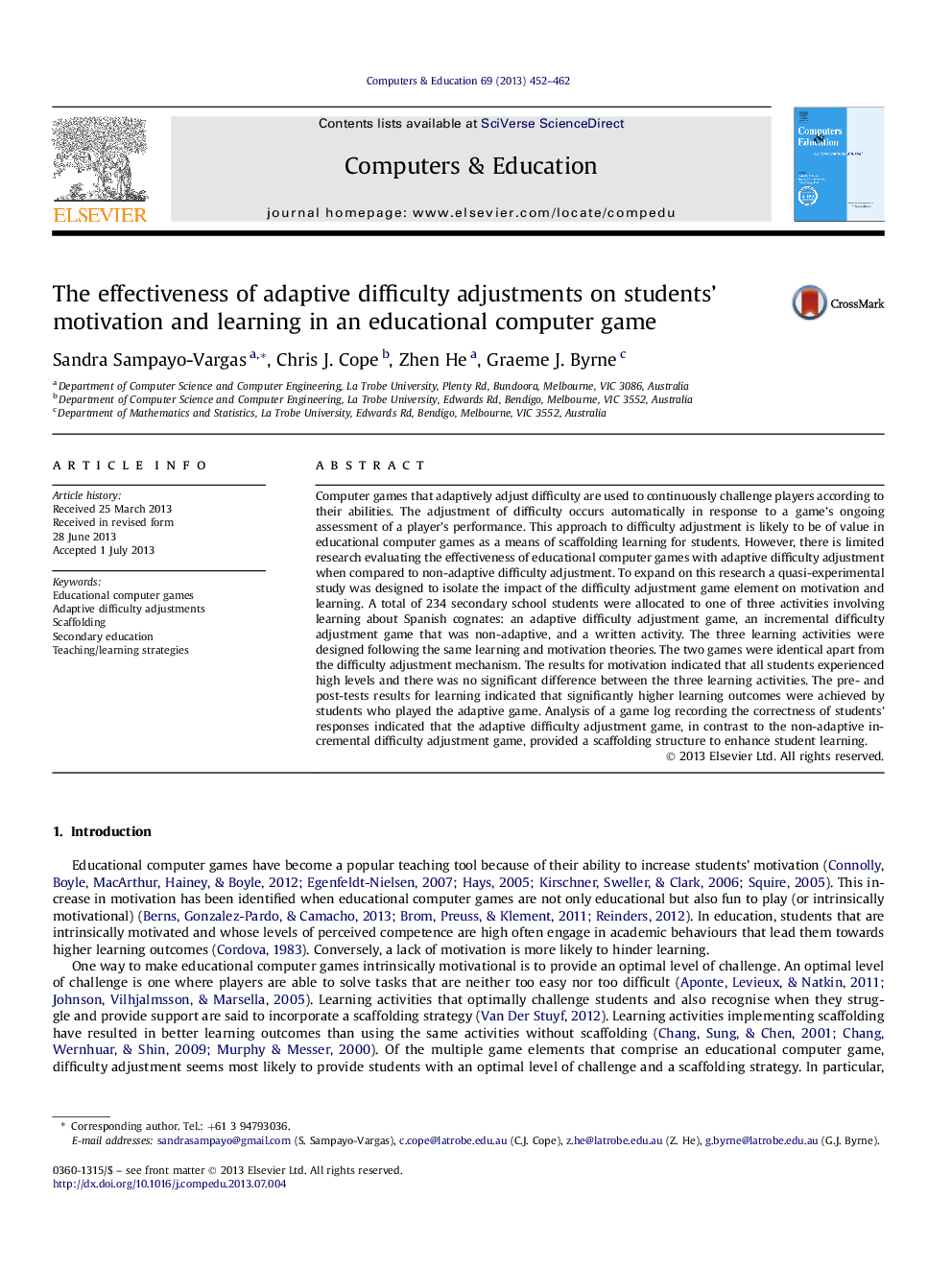| Article ID | Journal | Published Year | Pages | File Type |
|---|---|---|---|---|
| 6835501 | Computers & Education | 2013 | 11 Pages |
Abstract
Computer games that adaptively adjust difficulty are used to continuously challenge players according to their abilities. The adjustment of difficulty occurs automatically in response to a game's ongoing assessment of a player's performance. This approach to difficulty adjustment is likely to be of value in educational computer games as a means of scaffolding learning for students. However, there is limited research evaluating the effectiveness of educational computer games with adaptive difficulty adjustment when compared to non-adaptive difficulty adjustment. To expand on this research a quasi-experimental study was designed to isolate the impact of the difficulty adjustment game element on motivation and learning. A total of 234 secondary school students were allocated to one of three activities involving learning about Spanish cognates: an adaptive difficulty adjustment game, an incremental difficulty adjustment game that was non-adaptive, and a written activity. The three learning activities were designed following the same learning and motivation theories. The two games were identical apart from the difficulty adjustment mechanism. The results for motivation indicated that all students experienced high levels and there was no significant difference between the three learning activities. The pre- and post-tests results for learning indicated that significantly higher learning outcomes were achieved by students who played the adaptive game. Analysis of a game log recording the correctness of students' responses indicated that the adaptive difficulty adjustment game, in contrast to the non-adaptive incremental difficulty adjustment game, provided a scaffolding structure to enhance student learning.
Related Topics
Social Sciences and Humanities
Social Sciences
Education
Authors
Sandra Sampayo-Vargas, Chris J. Cope, Zhen He, Graeme J. Byrne,
